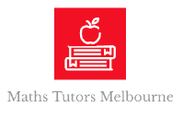|
Many students dread calculus because they think it’s a subject that is hard to learn and understand. In reality, the main struggles of most students are not with calculus itself, but their lack of understanding with foundational trigonometry and algebra concepts that are commonly applied to calculus.
This is the main reason why it is essential to review past math classes and notes to truly understand the foundational maths concepts that you’re required to know before you take on calculus. In this article, we’re going to simplify calculus. Get ready to discuss key concepts from trigonometry and algebra, as well as definitions and symbols you must understand.
It’s recommended that you don’t breeze on a particular topic like limits since it’s the foundation of calculus and everything else will depend on it. You will need to understand the conceptual meaning behind a limit to fully understand next concept.
After learning the symbols, you should also know when to use them. Therefore, it’s essential to know all the small details, or you’ll end up getting more confused.
Overall, practice is the key to your success so solve a lot of problems everyday or as much as you can. Don’t give up, it will become easier once you get the hang of it. Most importantly, do all your homework following what your teacher has covered before the following lesson commences. If you need a tutor to help with your understanding and confidence, find out about their rates. Holidays are the best time to refocus and recharge, but it’s also an ideal time to get your head around the curriculum. Studying over the holiday break will provide you an opportunity to get a head start when classes begins, so you won’t feel completely lost in class.
This is also essential for Year 12 since you’ll be shifting to higher education, and teachers will expect you to be more independent, so setting a study routine during the holiday will better prepare you for the Victorian Certificate of Education or Victorian Certificate of Applied Learning. Here are some tips to consider when you’re setting your study routine during the holiday break:
Lastly, don’t forget to spend time every day doing something you enjoy, like going out with your friends and family. It’s a holiday break, after all, so its’ best to relax and not get burnout, while also prioritising your studies. Overall, it is essential to establish a solid study routine, so you make the most of your holiday break and give yourself a better chance of achieving high marks during the coming assessment period. If you are becoming overwhelmed, it's best to seek help from a qualified tutor. Find our about the cost of tutors here. How Much Do Tutors Cost? A private tutor is someone who believes they have expertise to teach a specific subject, and they offer their services to students who need academic help. Tutors are usually professors, industry professionals, undergraduate students and teachers who have robust experience in a particular subject area. Therefore, private tutoring rates will vary depending on the location, experience of the tutor, and frequency of the tuition sessions. However, the tutoring industry is currently unregulated, so anyone can claim they are a tutor even if they don’t have the required expertise and qualification to teach a particular subject like maths and science. In fact, unqualified, unaccredited, and tutors with no experience often charge very low. Some of these tutors are still students who achieved high grades in a particular subject, but this doesn’t mean that they have the capability to guide your child to academic success. Breakdown of cost depending on the type of tutor:
As parents, we should provide our children with an ideal tutor that can help them achieve their academic goals. That is why we urge you to ensure the credibility and qualifications of a potential tutor before you make the final decision. Additionally, be wary of cheap tutors since they may not be the right tutor for your child. It’s best to spend a little more as long as you get the value for your hard-earned money. If you are looking for one of Melbourne's top Maths Tutors, expect to pay $66 for an undergraduate and $88 for a fully qualified teacher through maths tutors Melbourne. |
AuthorWrite something about yourself. No need to be fancy, just an overview. Archives
June 2024
Categories |
|
Maths Tutors Melbourne |
